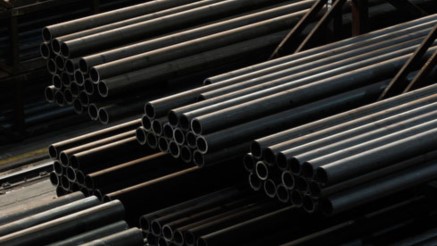Our exclusive license for low plasticity burnishing in the oil and gas market means the best protection from cracking and fatigue.
Every coupling has resistance to cracking within determined parameters of environment, product grade, and quality, but Platinum Samandy takes crack mitigation a step farther. Low plasticity burnishing (LPB®), the newly patented technology exclusive to Platinum Samandy, is a surface treatment that enhances the performance and service life of treated couplings by providing enhanced resistance to sulfide stress cracking, fatigue cracking, corrosion fatigue cracking and cracking induced by foreign object damage.

Initially developed with grants from National Aeronautics and Space Administration for use in the aerospace industry, LPB is also being applied to materials in the nuclear and medical fields. Now, for the first time, LPB is available to the oil industry through Platinum Samandy.
What is Low Plasticity Burnishing?
LPB is applied by rolling a high-hardness ball across the surface of the work piece under computer-controlled pressure and quality control systems to create an engineered high-residual stress field of beneficial compression. Compression stress fields created with LPB processing act to reverse the tensile stress that contributes to fatigue cracking, corrosion fatigue cracking, sulfide stress cracking and cracking that initiates from foreign object damage. The process creates a surface that maintains its crack mitigation effect even after thermal exposure and mechanical overload.
An LPB treatment system has been installed at the Platinum Samandy coupling production facility in Pine Bluff, Arkansas. This facility can provide treatment of couplings during manufacture, enabling Platinum Samandy to quickly fill orders for its clients with this cutting-edge technology.
Testing of LPB®-treated coupling blanks show significant stress reduction
LPB®-treated couplings were tested by flooding the outer surface of API P110 coupling blanks in a saturated NACE-A solution environment. The samples received internal pressurization at various applied hoop stress levels up to 85% of specified minimum yield strength (SMYS). Untreated coupling blanks failed after an exposure of only 37.5 hours at a maximum stress of 45% SMYS. Specimens treated with LPB® processing exceeded 720 hours at each of the stress levels of 45%, 80% and 85% of SMYS, surpassing typical hold-time requirements for sour service testing. The test results demonstrated the dramatic improvement achieved with LPB processing.LPB is a registered trademark of Lambda Technologies Group. The technology is protected under several patents.

